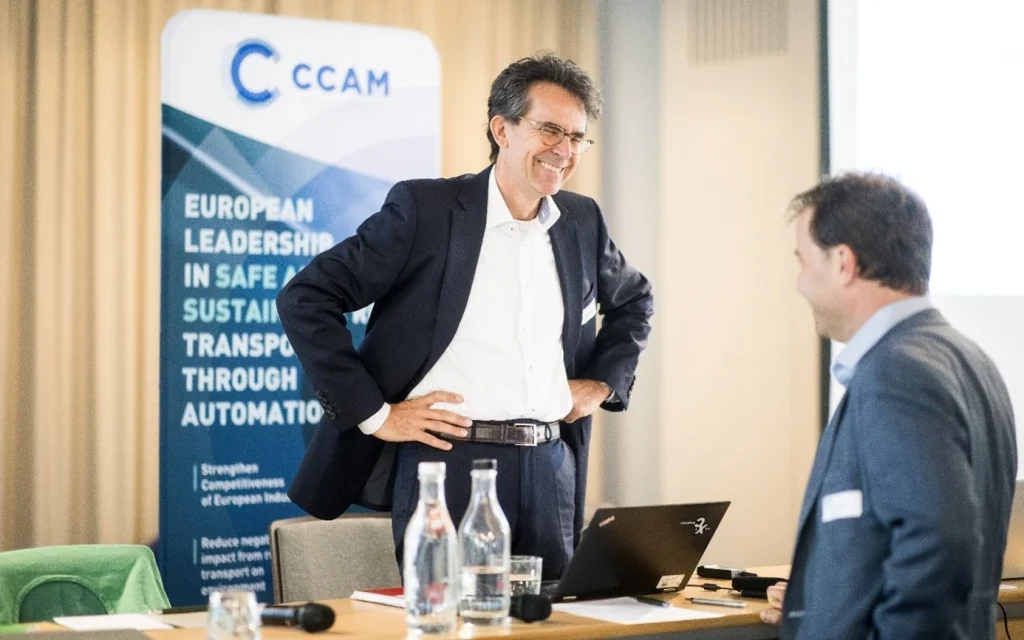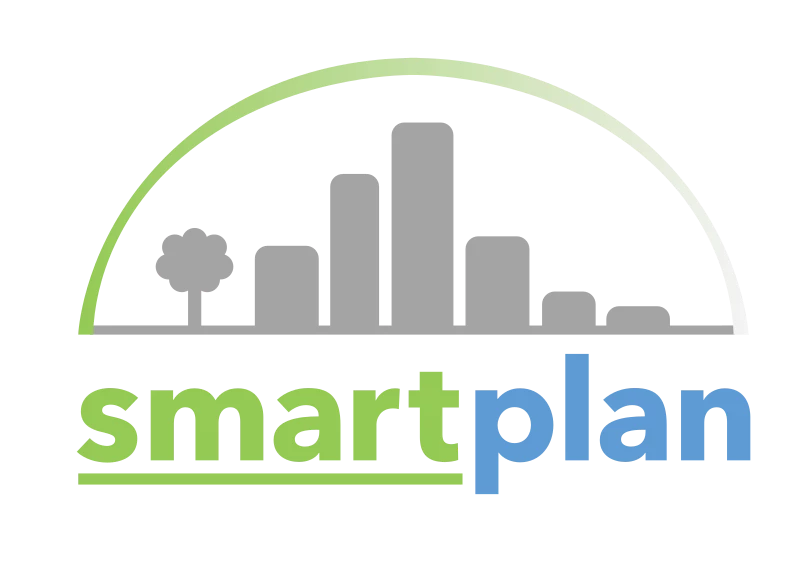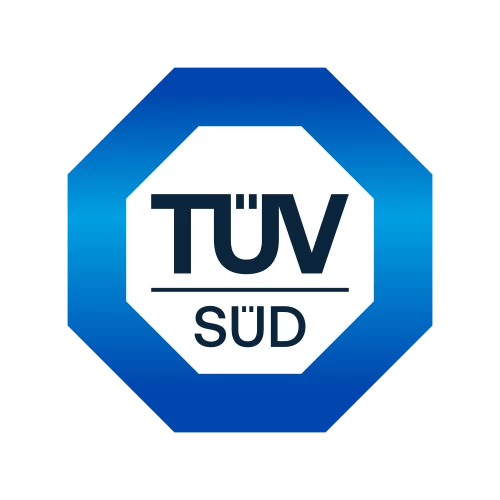Association for Autonomous
and Cooperative Mobility
About CzeCCAM
The Czech Association for Autonomous and Cooperative Mobility (CzeCCAM) was founded at the beginning of 2023 with the goal of promoting an interdisciplinary and holistic approach to cooperative and automated transport.
The integration of cooperative and automated vehicles into the transportation system has the potential to revolutionize mobility, making it more efficient, safer, and sustainable. However, the successful adoption and deployment of CCAM requires a multidisciplinary approach that involves key stakeholders, such as policy makers, industrial partners, and the academic community. Bringing these entities together for cooperation clearly defines the mission of CzeCCAM and its close connection to the European CCAM Partnership.
Our goal is to support a multidisciplinary cooperative approach that integrates cooperative and autonomous vehicles into traffic management systems, develops ethical and legal frameworks, moderates the necessary changes in research and development funding, and increases education and awareness in the necessary areas of expertise and knowledge. By collaborating with national and international partners, we strive to create a future transportation system that is safe, efficient, fair, and sustainable.
Our Mission
To achieve this goal, our further steps and activities are primarily as follows:
Analyze the necessary changes in Czech legislation
and engage in professional discussions with responsible political organizations to support the required changes.
Integrate and harmonize Czech professional activities with partners from the European CCAM
platform to ensure a harmonized approach to CCAM.
Work on national and international projects
to implement a holistic approach to CCAM in practice.
Educate students and professionals in the field of CCAM
to increase general awareness of the need for a multidisciplinary approach to CCAM.
Key concepts
CCAM will play an important role in the future, especially due to its cooperativeness. However, some key assumptions must be agreed upon to make this role a positive one. For this reason, it is necessary to follow the main concepts:
News
Cooperation of main key stakeholders
CzeCCAM is a cooperative environment for all stakeholders in the area. It offers a common space for aligning visions of future mobility systems and services, cooperation on mutual R&D projects and to promote conceptual think-tank like outcomes to relevant governmental institutions.
Cooperative environment, not just vehicles
The focus on holistic research, design, and development of connected, cooperative, and automated human-centric mobility is crucial:
- The control algorithms for cooperative traffic management should be distributed from the traffic management centers through traffic controllers to particular vehicles.
- The communication technology used for V2X (vehicle‑to‑anything communication) should be shared with other purposes, such as mobile communications, to reduce overall energy demands
- At the same time, technology should be developed technology for including all (road) transport users in a connected environment
For this purpose we will establish a common, however distributed, R&D laboratory to further investigate the interactions between all cooperative and also non-connected entities in road transport. These “United Labs” will follow the same low energy demanding approach and further support cooperation in CCAM topics.
Focus on human-centric policies
Focus on services (Maas, DaaS)
Not just technology – Human-in-the-loop
Integration of approaches
New policies focusing on mobility of people and goods, but not omitting a general use of public space, need to be carefully developed. Such policies should then be integrated into regional sustainable development strategies. will publish decision support documents and tools on crucial CCAM topics and challenges to support primarily, but not only, relevant policy makers and executive power.
CzeCCAM will define, simulate, and evaluate concepts in the area of MaaS (Mobility-as-a-Service) and DaaS (Delivery-as-a-Service) to demonstrate relevancy of various CCAM technologies in the area of these new transport services. The above proposed “United Labs” will serve as a supporting body for the R&D activities in the field.
Every technology, not only transport-oriented, is researched and developed for humans and society. Therefore, assessment and validation methodologies, including human in the loop, should be developed, testing the socio-technological system as a whole, or at least its significant parts. We will create a methodology for evaluating every innovative technology and transport concept with respect to humans in the whole lifecycle of the research and development. Such methodology will be applied throughout every experiment made within “United Labs”.
If we want to have a positive impact on the transport system, we need to change the way we manage traffic in cities.
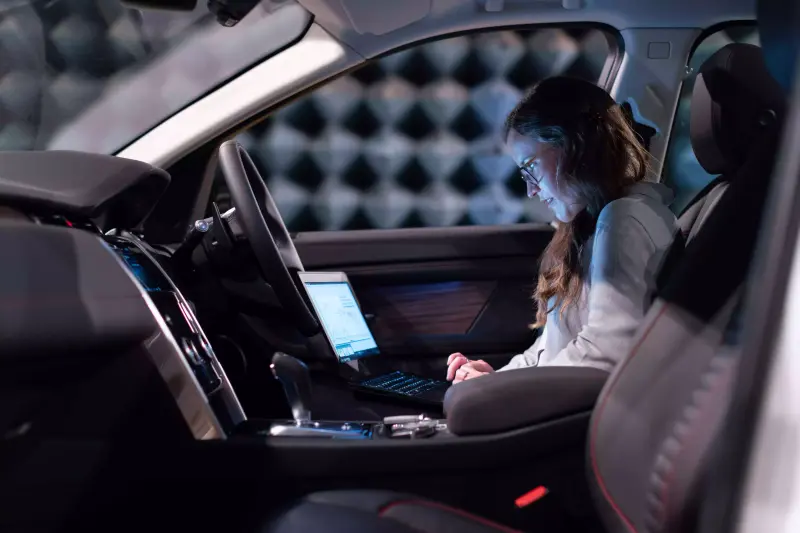
Automated
- increased productivity
- increased comfort
- increased vehicle variability
- new transport services

Cooperative
- load balancing
- early warning
- distributed traffic management
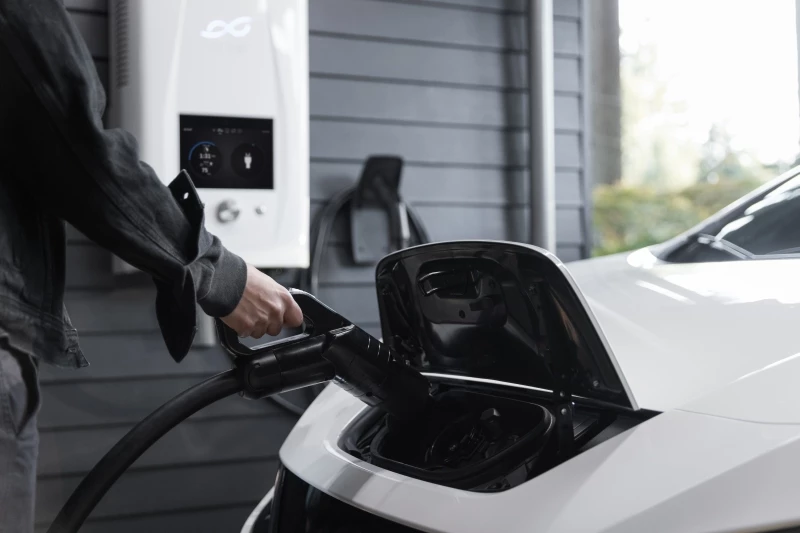
Clean
- lowered emissions
- increased efficiency
- decreased noise
- renewable energy source

Shared
- lowered congestions
- decreased number of produced vehicles
- decrease in VMT
(vehicle-miles-travelled)
CzeCCAM is promoting the need to consider the design of any transport system entity, such as a vehicle, traffic sensor, or actuator, not as a single unit, but as part of a larger, integrated system with various levels of cooperative control. This approach should prioritize the interaction and integration with humans. The design and validation process should involve the development of a large number of interacting units from the outset. However, business models should be investigated only after the human-centric design process is complete to prevent unintended impacts on the system’s design.
Legal framework
Testing and validation
Education
Investment into R&D Building knowledge centres
Investing in research and development in the Czech Republic tends to be short-sighted, focusing on short-term projects that only deliver small improvements to the state-of-the-art, even if successful. Most of the know-how is lost as researchers move on to other tasks and projects. Stable financing of research clusters with long-term goals and partial short-term projects leading to the same objectives can help build know-how and real competencies in this complex field.
These clusters must connect academic partners with partners from the commercial sector and build close cooperation with state organizations. This paradigm of research support system needs to be adapted to the need for education of highly qualified experts and specialized workers who are much needed by Czech entrepreneurs and institutions to create future knowledge-based long-term values, not only in the transportation sector. Such a change could also help stabilize the economic growth of the country, as the product manufacturing is based on local knowledge and thus cannot be easily withdrawn, unlike in countries based on simple order-based manufacturing and assembly.


